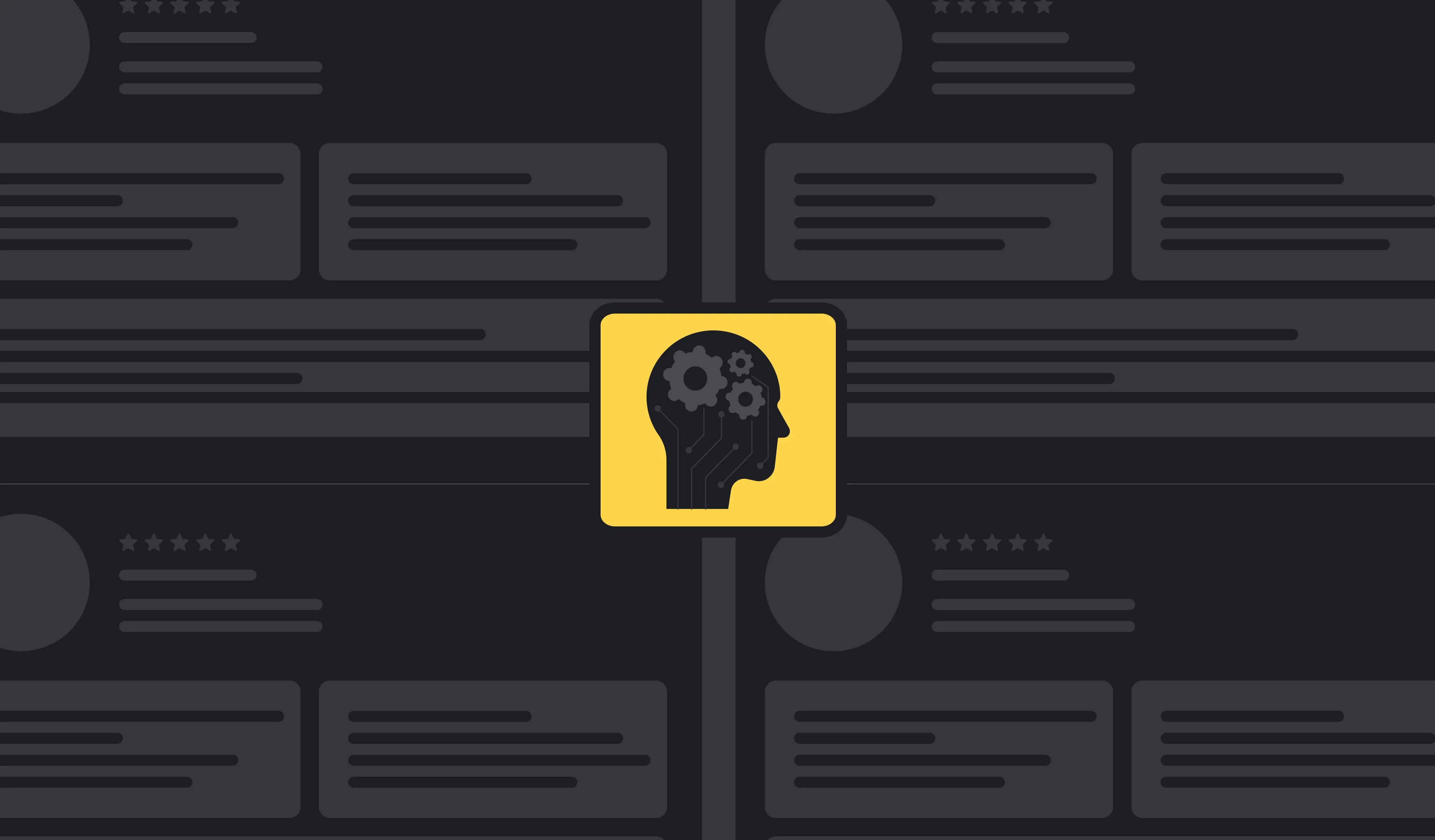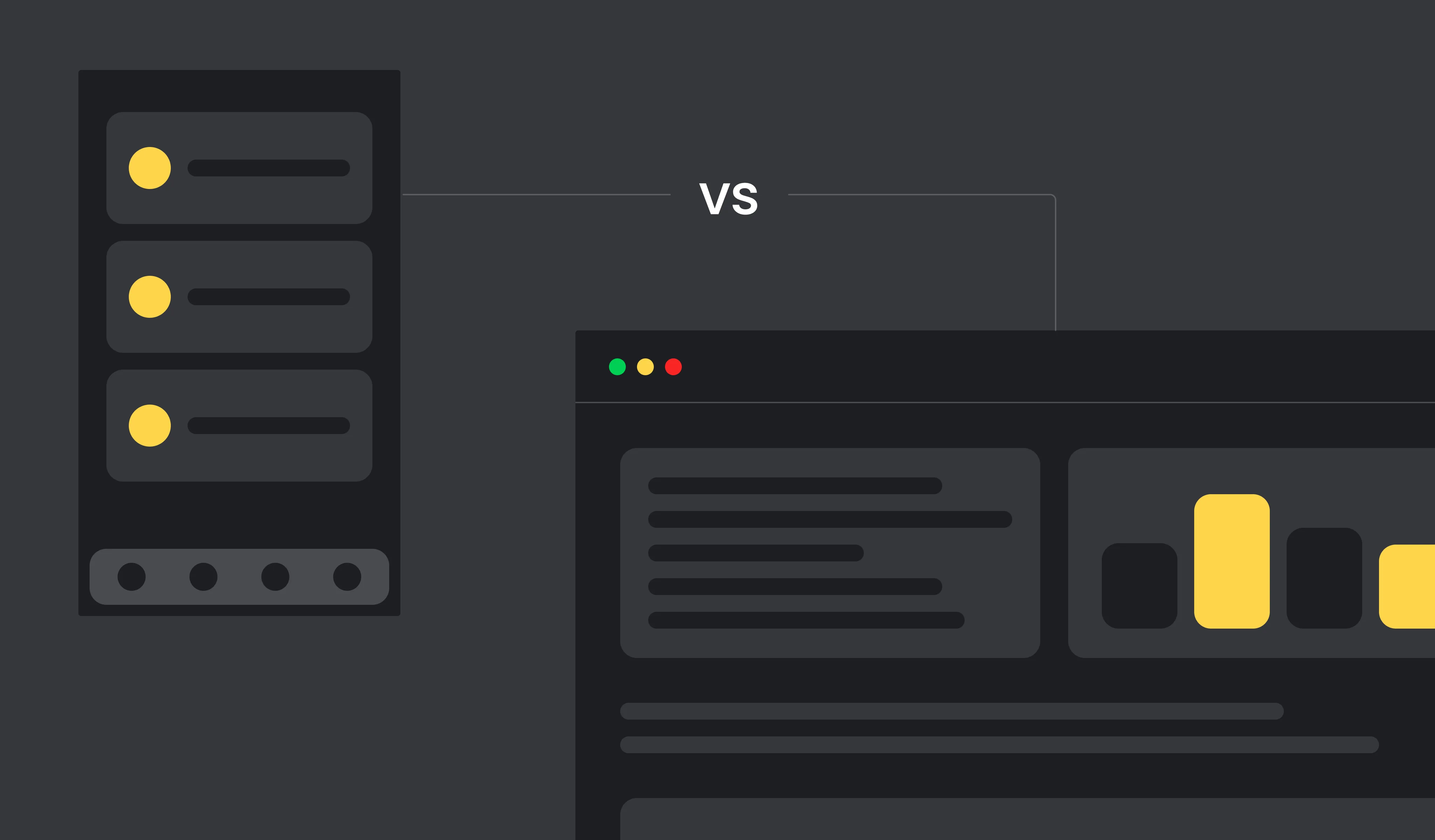Traditional content management systems (CMS) simply aren't built to handle the growing complexity and expectations of modern customer journeys. Whether you're trying to deliver content across multiple devices, track customer preferences in real-time, or integrate new technologies, legacy CMS platforms often fall short.
Digital Experience Platforms (DXP) and Composable CMS are modern solutions that offer a flexible, scalable future for digital engagement, empowering businesses to meet customer expectations and innovate without being constrained by legacy systems.
In this article, we’ll explore the key differences between DXPs and traditional CMS, dive into the benefits of adopting composable CMS architectures, and share real-world examples of how businesses are leveraging these solutions to not only meet but exceed customer expectations.
The Challenge: Navigating the Limitations of Legacy CMS
Imagine a customer journey that begins on a mobile device during their morning commute, continues on a tablet during lunch, and picks up again on a desktop in the evening. With each interaction, they expect seamless content delivery and a personalized experience that acknowledges their preferences and behavior from previous touchpoints.
However, for businesses relying on traditional CMS, delivering this level of consistency and personalization is increasingly challenging. Legacy CMS platforms, while once the backbone of digital experiences, were built to handle simpler, static web interactions. They are siloed, limited in scalability, and incapable of managing the complexity of today’s omnichannel world.
A Salesforce report revealed that 70% of customers say connected experiences across multiple channels are crucial to winning their business. However, only 24% of companies have successfully implemented an omnichannel strategy to provide this level of engagement. The disconnect between customer expectations and business capabilities is a direct result of legacy CMS systems, which are no longer sufficient in managing the multi-channel, personalized engagement that customers demand. Legacy CMS struggle to deliver content efficiently across various digital channels, such as websites, mobile apps, and social platforms.
The Promise of Digital Experience Platforms (DXP)
As customer expectations grow, businesses need to evolve to meet these demands. This is where Digital Experience Platforms (DXP) come into play. DXPs are integrated platforms designed to deliver, manage, and optimize personalized customer experiences across all digital touchpoints. A DXP enables seamless management and personalization across every digital channel, including web, mobile, and emerging platforms.
Unlike traditional CMS, which focuses primarily on content management for a single web experience, DXPs provide a much broader range of capabilities. They enable businesses to manage content, track customer behavior in real-time, deliver personalized experiences, and optimize the entire customer journey across multiple channels.
Key features of a DXP include:
- Omnichannel Content Delivery: Deliver content consistently across web, mobile, social media, email, and other digital platforms.
- Personalization: Leverage customer data to provide highly relevant, personalized content at every stage of the journey.
- Data & Analytics: Real-time analytics help businesses track customer interactions and optimize their digital experiences.
- Integrations: Robust integration capabilities allow seamless connection with CRM, marketing automation, eCommerce, and other key business systems for a unified customer experience.
With DXP platforms like Ibexa, Optimizely, Contentful, Drupal-based DXP, and Acquia, businesses are empowered to deliver more meaningful, dynamic, and personalized customer experiences than ever before.

Composable CMS: Flexibility for the Modern Business
While DXPs offer integrated, all-in-one solutions, Composable CMS takes a different approach. Composable CMS is an API-first, modular system that allows businesses to build their digital infrastructure by selecting the best components for their specific needs. Built on a modular architecture, composable CMS enables the integration of reusable components and other modules such as analytics, SEO, or personalization, providing a flexible foundation for digital content management.
Think of it as a flexible, customizable toolkit that enables businesses to pick and choose the best content management, eCommerce, search, and personalization tools to create the ultimate digital experience. Each module or component is designed for a specific function, enabling businesses to assemble a solution that fits their needs. The power of Composable CMS lies in its flexibility – allowing businesses to mix and match tools and easily swap out components as their needs evolve.

Key Benefits of Composable CMS
- Flexibility: Businesses can select the best tools for each specific use case and integrate them with existing systems, offering unparalleled customization and scalability.
- Scalability: As your organization grows, composable CMS can scale with you. New components can be added as needed without requiring a complete overhaul of the system.
- Developer Freedom: Developers can work with the latest frameworks and technologies to create the most innovative and efficient digital experiences.
- Independent Workflows: Marketing teams and content creators can work independently on content updates, reducing reliance on developers and increasing operational efficiency.
For example, a business might use a composable CMS to integrate various modules—such as content management, analytics, and SEO—across their entire tech stack. By leveraging headless architecture, they can decouple the presentation layer from the backend, enabling flexible content delivery to multiple channels and ensuring each reusable component or module works independently to deliver a scalable, customizable digital experience.
Why Composability Drives Better Customer Engagement
At its core, Composable CMS offers unparalleled flexibility in delivering superior customer engagement. Here’s how:
- Faster Personalization: By integrating real-time data and content management, businesses can deliver highly personalized experiences immediately, tailoring content, product recommendations, and offers to each user, ensuring users receive digital content that matches their preferences and behaviors.
- Real-Time Data Integration: With composable CMS, businesses can integrate data from multiple sources (CRM, marketing tools, eCommerce platforms) to create a unified customer profile that powers more relevant engagement.
- Seamless Omnichannel Delivery: Composable CMS ensures content is delivered consistently across all channels – whether customers are interacting via web, mobile, or social media – ensuring a cohesive experience throughout their journey.
- Adaptability to Future Needs: As customer preferences evolve and new technologies emerge, composable CMS enables businesses to quickly adapt without overhauling their entire system. This flexibility makes it easier to stay competitive in a fast-moving digital landscape.
By leveraging composable CMS, organizations can better achieve their digital goals and ensure their digital strategy remains agile and aligned with future growth.
The Role of Content Creation in Modern DXPs
Content creation is at the heart of any successful digital experience platform. In today’s fast-paced digital landscape, businesses must deliver engaging digital experiences that resonate with diverse customer segments across multiple channels. A robust content management system (CMS) within a DXP empowers content creators to manage content efficiently, update website information, and launch new campaigns—all without the need for technical expertise.
By leveraging advanced content management capabilities, organizations can tailor their messaging to specific customer needs, ensuring that every interaction feels relevant and personalized. This targeted approach not only enhances customer engagement but also drives business growth by fostering deeper connections and encouraging repeat interactions.
Modern content management system CMS platforms enable businesses to significantly improve their digital presence by supporting contextualized digital experiences. Whether it’s updating a website, launching a new product page, or creating interactive content for different platforms, effective content creation ensures that customers receive the right message at the right time, ultimately elevating the overall digital experience.
Leveraging Customer Data for Personalization and Engagement
Harnessing customer data is a game-changer for businesses aiming to deliver personalized and engaging digital experiences. A digital experience platform (DXP) acts as a central hub, collecting and analyzing customer data from a variety of sources – websites, mobile apps, social media, and more. This wealth of information allows businesses to segment their audience and create highly targeted marketing campaigns that speak directly to the needs and interests of specific customer segments.
By integrating machine learning into the digital experience platform DXP, businesses can predict customer behavior and preferences, enabling them to deliver content and offers that are both timely and relevant. This data-driven approach ensures seamless customer experiences across multiple touchpoints, as each interaction is informed by a unified customer profile built within the content management system.
The result is a more cohesive and satisfying digital experience for customers, which in turn drives loyalty and revenue growth. By leveraging the full capabilities of content management systems and digital experience platforms, businesses can create, refine, and optimize their engagement strategies to build lasting relationships with their customers.
DXP vs Traditional CMS vs Headless CMS
When evaluating digital experience solutions, it’s helpful to compare DXP, Traditional CMS, and Headless CMS. Here’s a breakdown of how each system stacks up.
A headless CMS is based on a headless architecture, where the presentation layer is decoupled from the back-end. This separation allows for greater flexibility in delivering content across multiple front-end channels. However, in a headless CMS, nearly everything related to content presentation and updates must be handled by developers, which can be challenging for content teams due to the lack of visual editing tools.
This comparison illustrates how DXPs provide the most comprehensive solution for businesses requiring a robust, integrated approach to customer engagement, while Composable CMS offers more flexibility for businesses looking to customize their architecture. Ultimately, selecting the right solution is essential to meet your business needs and deliver personalized digital experiences.

Implementation and Integration: Making the Shift to DXP and Composable CMS
Transitioning to a Digital Experience Platform (DXP) and a composable content management system requires a thoughtful, strategic approach. Adopting a modular approach to implementation allows businesses to introduce new functionalities and services incrementally, minimizing disruption to ongoing operations.
The first step is to assess your current tech stack and identify where a composable architecture can deliver the most value. By moving away from a monolithic architecture and embracing a composable approach, organizations can create a flexible, scalable digital infrastructure that supports rapid innovation and growth.
This shift enables businesses to adapt quickly to changing customer needs and market trends, integrating new services and features as required. With a composable content management system CMS and a digital experience platform DXP, companies can streamline content management, improve operational efficiency, and ensure their digital experience remains competitive and relevant.

Best Practices for Delivering Exceptional Digital Experiences
To deliver truly exceptional digital experiences, businesses must prioritize both the needs of their customers and the efficiency of their internal teams. Start by designing a user-friendly interface that makes it easy for customers to find and interact with relevant content and services. Utilizing a headless CMS allows for seamless content delivery across multiple channels, ensuring a consistent and engaging customer experience no matter where the interaction takes place.
Robust analytics and reporting capabilities are essential for measuring the effectiveness of your digital experiences and identifying opportunities for improvement. By leveraging AI technology and machine learning, businesses can gain deeper insights into customer behavior, enabling them to create more personalized and engaging digital experiences.
Supporting your development team is equally important—provide strong developer support and equip content editors with intuitive tools to manage content efficiently. This collaborative approach ensures that your organization can create, deliver, and optimize digital experiences that delight customers and drive business success.

Measuring Success: KPIs and ROI for Digital Experience Initiatives
Evaluating the impact of your digital experience initiatives is crucial for ongoing improvement and investment. Key performance indicators (KPIs) such as customer engagement, conversion rates, and revenue growth provide a clear picture of how well your digital experiences are performing. A digital experience platform (DXP) offers powerful analytics capabilities, enabling you to track customer behavior and preferences in real time.
By analyzing these insights, businesses can refine their digital strategies and optimize their digital experiences to maximize ROI. It’s important to establish a comprehensive framework for measuring ROI, taking into account factors like development time, implementation costs, and the resulting revenue growth.
With the right analytics and reporting tools, organizations can demonstrate the value of their digital experience platform DXP initiatives, justify continued investment, and ensure that their digital transformation efforts deliver measurable business outcomes.
Five Jars: Driving Innovation with DXPs and Composable CMS
At Five Jars, we’ve also seen firsthand how the power of DXP and Composable CMS can transform the digital experiences of our clients. By implementing flexible and scalable digital architectures, we’ve helped businesses move beyond legacy systems and into the future of customer engagement.
George Washington’s Mount Vernon
We had the privilege of working with Mount Vernon to revamp their digital infrastructure by implementing a composable CMS. This allowed the organization to manage content across multiple channels, including their website, eCommerce platform, and educational resources. The composable CMS enabled seamless integration of different services, such as health risk assessment tools and video modules, to enhance the user experience. As part of their digital transformation, we supported the launch of a new website, which improved scalability and made future updates easier. The project demonstrated how adopting a composable CMS can elevate user experience while allowing for flexibility and future growth.
Spooky Nook Sports
When Spooky Nook Sports sought to enhance their digital presence, they needed a solution that could scale with their growth. Our team helped them implement a composable CMS that integrated various systems – eCommerce, mobile apps, and customer management – into a single, flexible platform. This integration enabled them to efficiently manage and distribute digital content across various platforms and digital channels. The new system also improved customer service by enabling personalized, multi-channel interactions, which enhanced customer satisfaction and operational efficiency.
The Path Forward: Adopting the Future of Customer Engagement
The digital world is evolving rapidly, and as business leaders, we must embrace solutions that allow us to meet the ever-increasing demands of our customers. Digital Experience Platforms (DXP) and Composable CMS provide the flexibility, scalability, and agility needed to stay competitive in today’s landscape.
By adopting these modern solutions, businesses can break free from the limitations of legacy systems, innovate faster, and build deeper connections with customers. As the digital experience becomes central to business success, DXPs and Composable CMS will play an essential role in how organizations engage and grow their audiences.
At Five Jars, we specialize in helping businesses navigate the complexities of digital transformation. Whether you’re exploring DXP or a Composable CMS, we can help you design a digital experience strategy that’s flexible, scalable, and future-proof.
Ready to get started? Contact us today to learn how we can help you optimize your digital engagement strategy and stay ahead of the curve.



